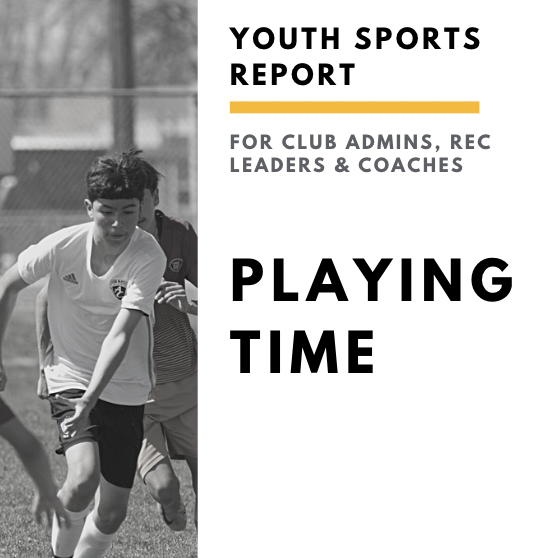Get our exclusive report. Download the iSport360 Club Switching Report Here – For Club Admins, Rec Leaders and Coaches.
10 Tips for Better Gut Health
If your athlete is struggling with gut issues, from constipation to bloating to diarrhea and everything in between, it can be overwhelming and stressful. There’s a vast amount of conflicting advice, and what works for one person may not work for another. So, how can you keep your athlete’s gut as healthy as possible?
Here, TrueSport Expert Kristen Ziesmer, a registered dietitian and board-certified specialist in sports dietetics, shares a few starting points to improve your athlete’s gut health, regardless of whether they’re experiencing any issues. She also explains when to seek expert help if gut problems do arise.
Make Sure Your Athlete is Fueling Adequately
Fueling before, during, and after a workout or competition is one of the best ways to keep an athlete’s gut (and entire body) healthy. It’s a bit ironic, but gut issues in athletes can stem from under-fueling, rather than eating the wrong thing. In fact, one of the early warning signs of Relative Energy Deficiency in Sport (REDs) is gut issues, ranging from stomach distress to constipation.
Add Pre- and Probiotic Foods
You don’t need to take a probiotic to populate the gut with good bacteria, says Ziesmer. Eating probiotic-rich fermented foods will do the trick. This includes things like sauerkraut, kimchi, kefir, and kombucha. Yogurt is another good option if your young athlete doesn’t like those foods. Prebiotic-rich foods are also important for feeding those good bacteria, and Ziesmer recommends bananas, oranges, and onions.
Understand Your Athlete’s Needs
Athletes have different fueling needs than sedentary people, and this can lead to mixed messages around what are ‘good’ foods for athletes. While mainstream articles about good gut health will tell you to skip simple sugars in order to optimize the gut microbiome, athletes need simple carbohydrates to fuel their training. Don’t fall into the trap of pushing a diet that’s recommended for a sedentary adult experiencing gut issues onto your young athlete who’s training regularly.
Keep an Eye Out for Intolerances
Gluten isn’t harmful or problematic… if your athlete is tolerant of it. If you suspect your athlete is intolerant to something in their current diet and it’s unclear what the culprit is, you may want to consider an elimination diet like the low-FODMAP diet, says Ziesmer. The low-FODMAP diet is meant to be done for two weeks, and then foods are slowly re-introduced to see which, if any, bother your athlete’s gut. However, this elimination diet is difficult to do while fueling adequately during intense or high-volume training, so it’s best done with supervision and advice from a doctor or registered dietitian. If your athlete wants to continue to train while finding the source of intolerance, try eliminating one food category at a time. Gluten, eggs, and dairy are common offenders and are easy to eliminate without impacting fueling options too much.
Don’t Fall for Fads
On a similar note, while a low-FODMAP elimination program is a research-backed way to find food sensitivities and intolerances, it’s not meant to be a ‘forever’ diet, nor is it a good idea for an athlete who isn’t dealing with gut issues. Similarly, any diet that eliminates a macronutrient group (carbohydrates, fat, or protein) isn’t ideal for a young athlete and will likely do more harm than good to their gut health.
Avoid Fatty Foods Before Practice
“High fat, ultra-processed foods can lead to a grumpy gut during practice,” says Ziesmer. Unfortunately, school lunches are often culprits here: Fried foods, sausage, bacon, or burgers for lunch can lead to gut issues later. Instead, look for healthier fats that are high in Omega-3s, or at least save the fatty foods for times where your athlete doesn’t need to perform at their best.
Cut Down on Caffeine and Sweetened Drinks
An excess of caffeine, artificial sweeteners, and refined sugar isn’t optimal for gut health, says Ziesmer. “When possible, stick to natural sweeteners like honey or maple syrup, and avoid high fructose corn syrup and artificial chemical-packed sweeteners,” she says. “Try to keep caffeine intake lower as well, since it can worsen digestive issues like diarrhea.”
Soothe a Grumpy Gut
If your athlete is having some gut distress, switch to a soothing, bland diet for a couple of days to see if it calms down. Avoid combining a lot of foods, says Ziesmer. Chicken and rice (with minimal spice or sauces) is usually a safe place to start, but a gut can also be soothed with bone broth. If your athlete is struggling to take in enough food, dealing with diarrhea or nausea, make sure that at a minimum, they’re hydrating and adding some electrolytes—just a pinch of sea salt in water with a splash of a juice—will help keep their electrolyte levels balanced to speed up recovery.
Look for Early Warning Signs of Poor Gut Health
“A lot of non-gut issues stem from poor gut health,” says Ziesmer. “And often, you notice these signs before you begin to notice actual digestion issues. Skin issues like eczema or persistent acne, a lot of allergies or strong allergic reactions, joint aches or tendinitis, feelings of fatigue or constant sluggishness, sleep issues, unexplained weight changes, and mood issues can all relate to the gut. And of course, digestive issues like gas, bloating, constipation, diarrhea, stomach pain, and acid reflux are obvious signs that something is wrong.”
If you’re noticing these signs and symptoms, consult with your athlete’s doctor: They can often help to recommend next steps, like meeting with a registered dietitian or testing for certain allergies or underlying issues.
Keep It Simple
The best way to keep an athlete’s gut healthy is the same way that you would keep their entire body healthy: “Focus on eating a well-balanced diet rich in whole foods, stay hydrated throughout the day, get lots of sleep, and decrease stress as much as possible,” says Ziesmer. “I’ve noticed that it’s just as common for gut distress to stem from life stress as it is to come from a food intolerance. Even if your athlete is eating optimally for the work they’re doing, if they’re under a lot of stress, their gut can still be impacted.”
Takeaway
The best way to keep an athlete’s gut healthy is the same way you keep the rest of their body healthy: They should be getting plenty of sleep and recovery time, keeping stress levels low, hydrating throughout the day, and eating a balanced diet consisting of primarily whole foods while ensuring that they’re fueling adequately before, during, and after training. If you suspect your athlete has a gut issue or food intolerance, seek help from a doctor or registered dietitian.
About TrueSport
TrueSport®, a movement powered by the experience and values of the U.S. Anti-Doping Agency, champions the positive values and life lessons learned through youth sport. Backed by U.S. Congressional mandate, TrueSport inspires athletes, coaches, parents, and administrators to change the culture of youth sport through active engagement and thoughtful curriculum based on cornerstone lessons of sportsmanship, character-building, and clean and healthy performance, while also creating leaders across communities through sport.
For more expert-driven articles and materials, visit TrueSport’s comprehensive collection of resources.
This content was reproduced in partnership with TrueSport. Any content copied or reproduced without TrueSport and the U.S. Anti-Doping Agency’s express written permission would be in violation of our copyright, and subject to legal recourse. To learn more or request permission to reproduce content, click here.
You can link back to the TrueSport article beginning May 1, 2024 at:
https://truesport.org/nutrition/10-tips-better-gut-health/
About iSport360:
iSport360 is the only app that does it all for youth sports. For more information on what we do, click here.
Learn more or request a demo of our youth sports software that is helping teams improve communication, organization and player development.
May 7, 2024





